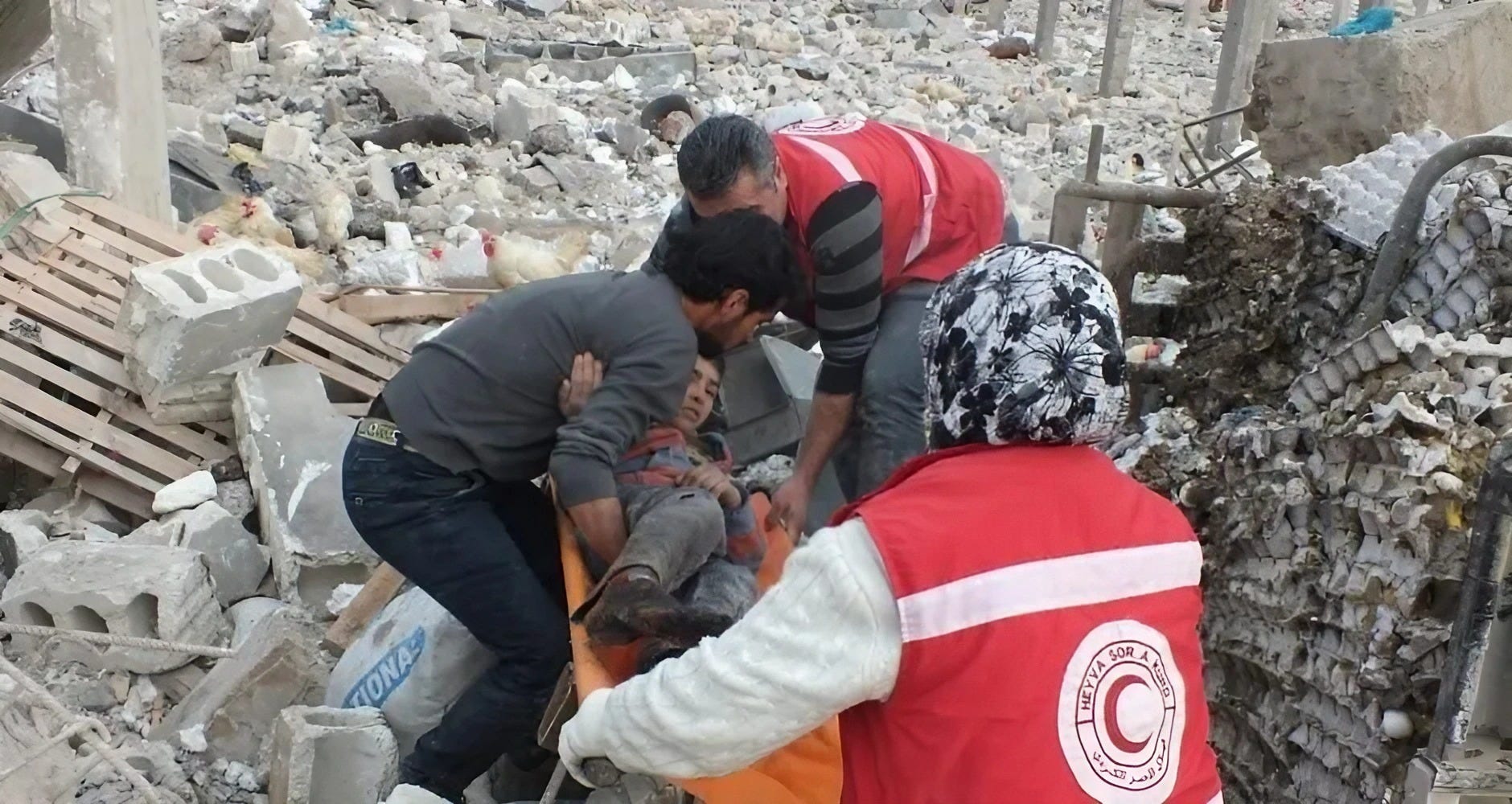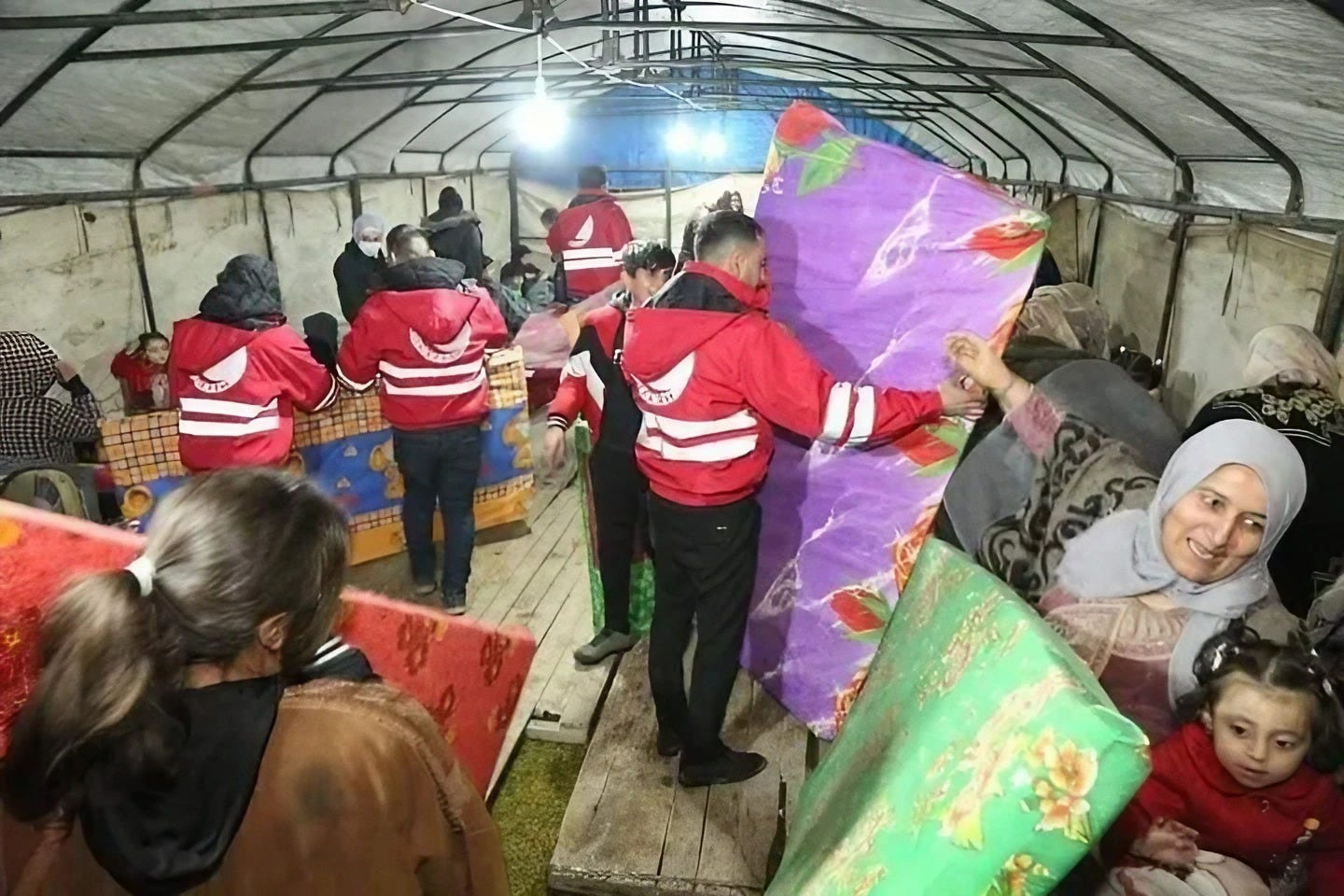Say No to Government-Obstructed Aid: Support Earthquake Recovery via KurdDAO
KurdDAO, together with the Kurdish Center for Human Rights (KCHR) and the Kurdish Red Crescent (Heyva Sor a Kurdistanê), is collecting donations on Ethereum for immediate humanitarian relief.
KurdDAO, together with the Kurdish Center for Human Rights (KCHR) and the Kurdish Red Crescent (Heyva Sor a Kurdistanê), is collecting donations on Ethereum for immediate humanitarian relief of the recent catastrophic earthquake which has taken over 37,000 lives.
To make a donation to these recovery efforts, you can send any Ethereum (Mainnet) assets, such as ETH, DAI, USDT & others to either kurddao.eth or 0x8beb8bb19eb9248c73c322f6e995a7d6be0a4494.
100% of direct donations sent to the address above will be allocated to rescue and relief efforts in the affected areas. KurdDAO and KCHR is working with the Kurdish Red Crescent (Heyva Sor) to help the people impacted by the disaster in Kurdistan, Turkey, and Syria.
We have grown concerned over emerging reports that in the midst of immeasurable human tragedy, the Turkish and Syrian governments have seized funds and material, prevented them from reaching the victims of the catastrophe and otherwise actively obstructed aid and rescue efforts. To be able to save human lives as quickly and effectively as possible we have decided to support Heyva Sor, an organization with extensive experience on how to operate in extreme situations in the scale that is necessary. Their dedication to humanitarian relief regardless of sectarian differences is genuine and proven.
Note: If there is an interest to donate in other crypto assets, please join our Telegram group, we will create an anonymous poll in a few days to better prioritize the creation of additional wallets.
Background
On the night of 6 February 2023, a 7.8 magnitude earthquake and a subsequent 7.7 aftershock with epicenters in Maraş (Kahramanmaraş) and Dîlok (Gaziantep) caused thousands of buildings to collapse in the middle of the night. One week later, the total number of victims and material losses caused by the disaster continues to rise. As of 13 February, over 37,000 people have died under the rubble of collapsed buildings.
The most affected regions both in Turkey and Syria are majority-Kurdish. The epicenter was in north-western Kurdistan which lies inside Turkey. 80% of the population are Sunni and Alevi Kurds, with sizable populations of Arabs, Turks, Syriacs and Syrian and Afghan refugees. Before the earthquake this region suffered heavily from war and political repression against Kurds and other minorities.
In Turkey the risks of such a catastrophe were known for a long time. Many engineers, geologists and city planners have implored the government for years to address the danger, yet construction failing to meet even the most basic safety standards continued unabashed.
The Turkish government has declared a state of emergency and filters all humanitarian aid coming into the region through AFAD (Disaster and Emergency Management Presidency). Over the past week there have been numerous reports of funds and material donations being seized by the government and rescue operations delayed or obstructed without explanation and against the advice of engineers and aid workers on the ground. Furthermore, intense repression both by state forces and government-backed paramilitaries against journalists, Kurdish politicians, refugees and prisoners is taking place under the cover of the chaos.
With the government unable or unwilling to help, the Kurdish solidarity community are self-organizing rescue efforts for all the victims of the tragedy regardless of their ethnicity or political affiliations. In Syria, people from the autonomous Kurdish-Arab regions of North-eastern Syria (Rojava) have collected donations; today a convoy of 52 trucks destined for Aleppo and the occupied Kurdish region of Afrin was allowed to pass into the rebel-held areas. While the governments of Syria and Turkey are instrumentalizing this disaster by denying basic human rights to Kurds and other minorities, the Kurdish people are taking matters into their own hands, upholding the belief in peace and equality for all even in these dark times.
As KurdDAO, we see an opportunity and a duty to help. Besides urgently needed rescue equipment, clothes, blankets, tents, food, and medical supplies, there is a need for people around the world to pay attention to what is happening on the ground. We must work together to tell the true story of the victims and survivors, to hold the governments of Turkey and Syria accountable and make sure aid is delivered to all the people who need it quickly, effectively, and indiscriminately.
In this critical moment, we must seek alternative ways of financing recovery efforts as official channels are failing. These alternative methods can allocate resources directly to related organizations such as KCHR and Heyva Sor.
Donating Ethereum (Mainnet)
To make a donation to these recovery efforts, you can send any Ethereum (Mainnet) assets, such as ETH, DAI, USDT & others to either kurddao.eth or 0x8beb8bb19eb9248c73c322f6e995a7d6be0a4494. Any direct donations made to this address will be 100% attributed to earthquake recovery efforts.
Donating Ethereum (Mainnet) for NFTs
KurdDAO has a separate fundraising campaign for Kurdish solidarity at large, where Freedom Flower NFTs can be minted in exchange for donations. If a donation is made via that campaign, 90% of those funds will be utilized for a mix of earthquake relief, and other projects such as women’s liberation and freedom for Kurdish political prisoners. Project budgeting will be determined via KurdDAO community consensus.
Donating Other Crypto Assets
If there is an interest to donate in other crypto assets, please join our Telegram group. We will be creating an anonymous poll in a few days so we can better prioritize the creation of additional wallets.
Donating Fiat
To make fiat donations (via bank transfer or PayPal), you can do so directly by following the instructions on Hevya Sor’s website.
About KurdDAO
KurdDAO aims to bring global solidarity and awareness to the Kurdish people’s struggle for freedom, initially raising funding to support women’s liberation, freedom for Kurdish political prisoners, as well as those fighting for democratic modernity in the Middle East.
About KCHR
The Kurdish Center for Human Rights was established in Geneva in 2000 as a direct response to the genocide, war crimes, and human rights violations occurring across the Kurdish regions of Turkey, Iraq, Iran, Syria. The Kurdish Centre for Human Rights aims to inform European citizens and the United Nation Human Rights Commission (OHCHR) on violations against the Kurds via seminars and other dialogue platforms.
About Heyva Sor a Kurdistanê
The Kurdish Red Crescent (aka Kurdish Red Moon) was founded in 1993 in Bochum, Germany. Since then the charity has grown with each day and become a beacon of hope for people in crisis. It operates in Turkey, Syria, Iraq and has offices in a number of European countries. Kurdish Red Crescent runs to the aid of vulnerable people under all conditions, providing assistance even in the most remote areas of Kurdistan.





